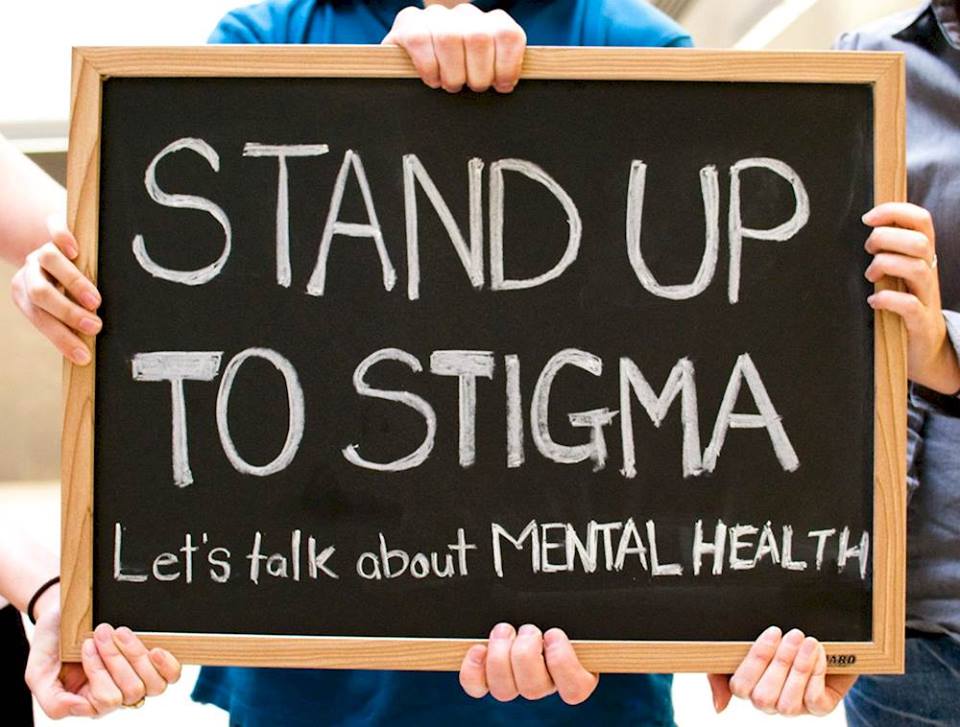Breaking Through the Stigma Barrier

There is no shame in having an illness of the brain. Really, we should see it no differently than if we had diabetes or heart disease. Each are chronic illnesses that need to be managed with medication, support from others, and lifestyle changes. So what makes us ashamed to tell others that we have a mental health condition?
For one, we face the stigma in our culture towards mental illness. The media sensationalizes mass shooters as being mentally ill, leading people to believe that anyone with a mental health condition is dangerous.
While most of us understand this kind of stigma, we may not be aware of the stigma we place on ourselves. Self-stigma occurs when we begin to believe the negative messages we hear. We may feel “less than” those around us who appear to be more productive and successful. Self-stigma says “if others see me this way, it must be true.”
One of the dangers of self-stigma is that it distorts how we see ourselves. Studies have shown that people with mental health challenges have lower self-esteem and confidence in themselves. They isolate and are less likely to seek treatment. If that’s true, how can we eliminate the stigmatizing thoughts and behaviors that keep us from living fulfilling lives?
A recent article in Esperanza, a magazine for people with bipolar disorder (click here to learn more), offers these tips to reduce self-stigma:
Work with a therapist to improve your self-image. A major benefit of therapy is that it can help you identify the negative ways you talk to yourself and how you can replace those thoughts with more positive messages;
Using the Internet for peer support. Esperanza has forums on a wide variety of topics where you can connect up with and learn from others (click here to see forum topics).
Becoming more comfortable with sharing your diagnosis. Start out by talking to safe people who understand mental health issues. Telling them about the challenges you face and how you’re living well in spite them will build your confidence in talking to people who lack understanding.
A few other ideas you might consider include participating in a mental health fair or walkathon; joining a support group such as Fresh Hope or starting one in your community; or by using social media like Facebook or Twitter to create awareness about mental health issues. For example, I use Facebook to repost mental health-related articles and motivational sayings.
Breaking out of self-stigma starts with seeing ourselves as an ordinary person with ups, downs and challenges, not as someone with a mental illness. I’m encouraged to see celebrities paving the way in changing our culture’s perception of mental illness by being open and honest about their own struggles. They set an example that even people we admire and look up to have mental health challenges and are leading productive, fulfilling lives in spite of them.
Of course we need to be cautious about who we open up to. I’ve found, though, that when I tell safe people “I have bipolar depression and I’m ok with that,” they are usually interested and will ask questions. Being transparent may even encourage someone who’s been hiding their diagnosis to risk telling you their story.
I think you will find that as you begin to share openly with trustworthy people, your own protective wall of self-stigma will start to crumble. When you let go of the shame and embarrassment of having a mental health diagnosis you’ll see both your self-image and confidence start to grow.



